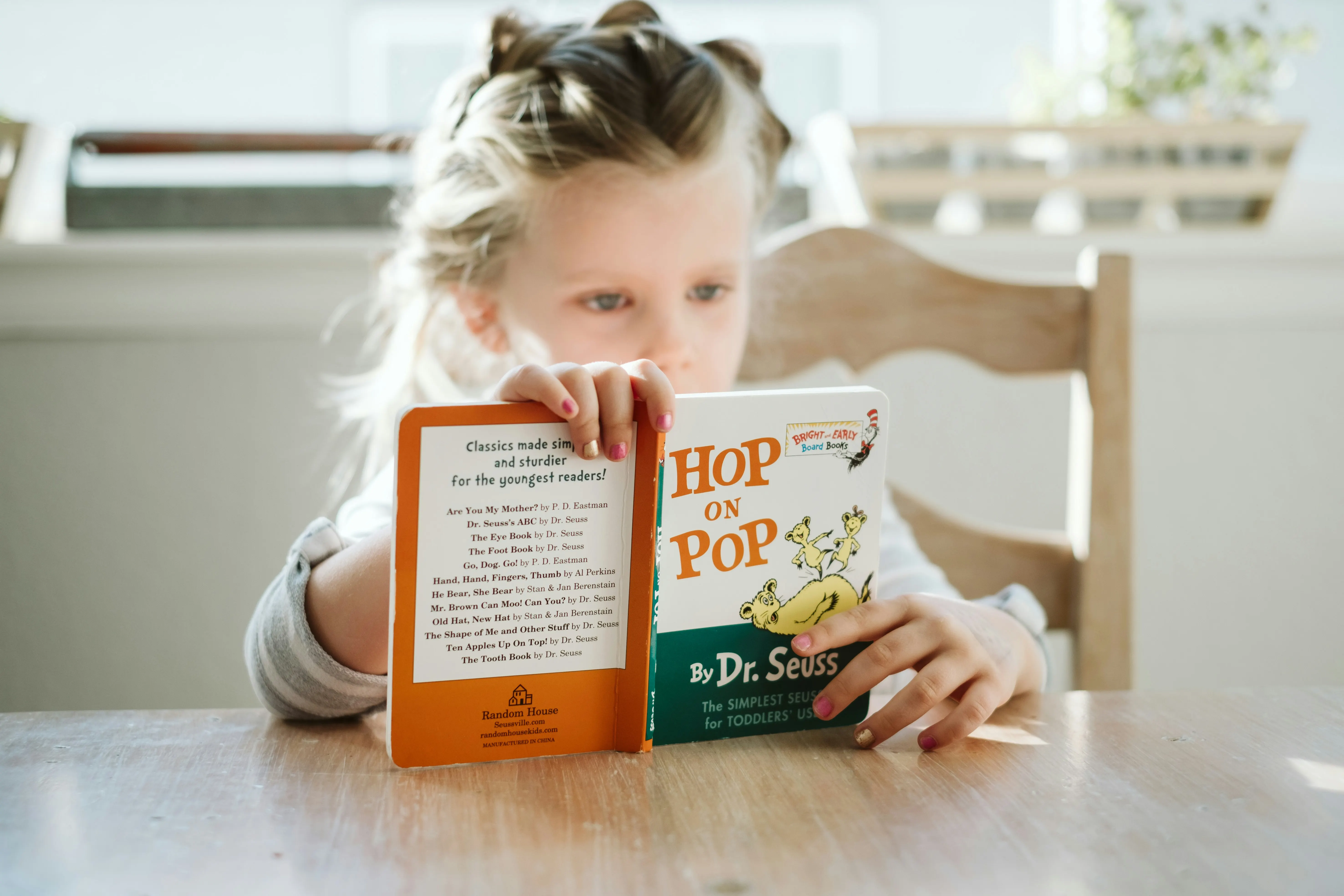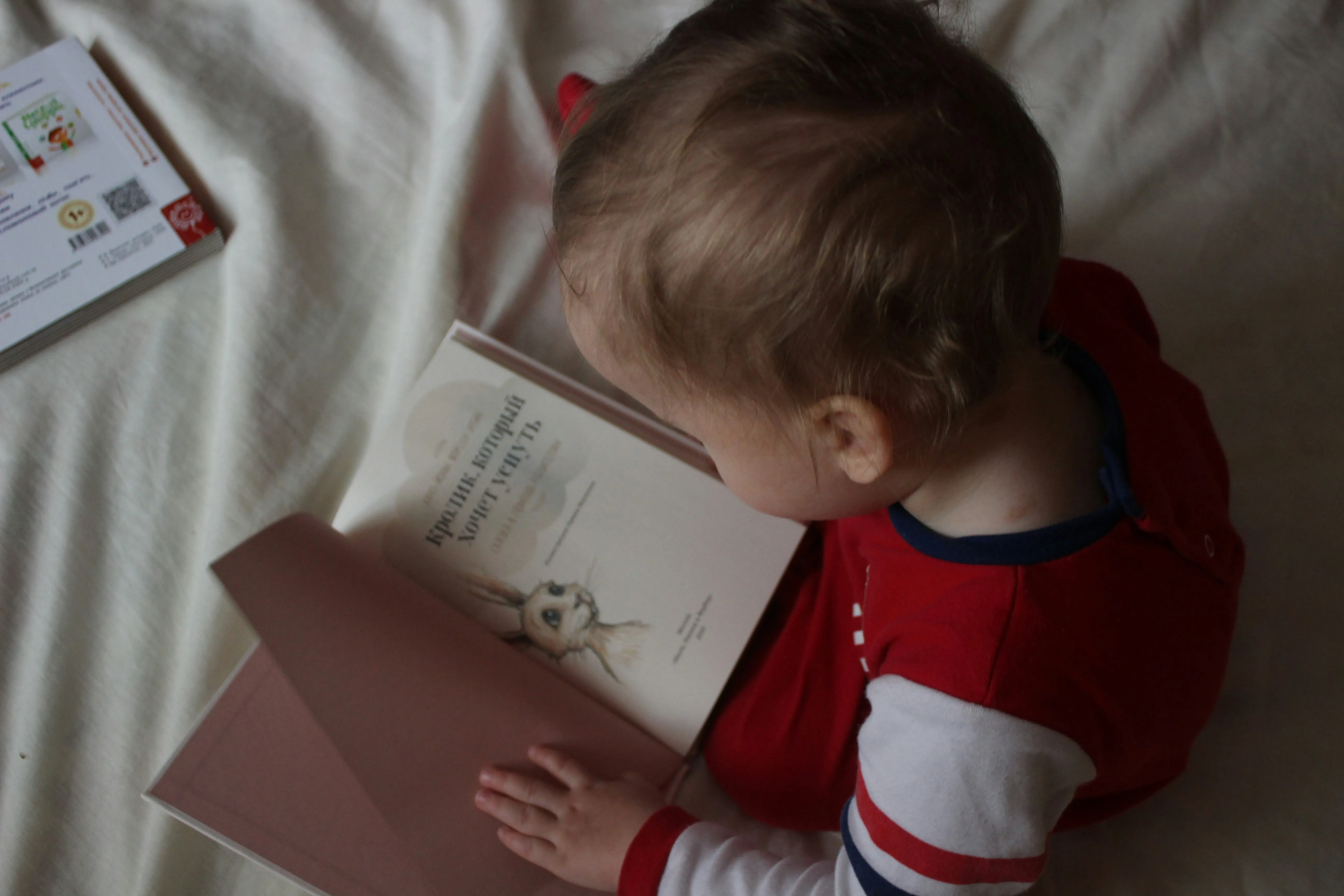Mastering Life Long Learning: Personalized Paths
 Personalized Learning Paths for Life-Long Learning
Personalized Learning Paths for Life-Long Learning
Technology has transformed the way we live, work, and learn. With personalized learning paths, individuals can tailor their education to their specific goals and needs, promoting lifelong learning. In this blog, we will explore the concept of personalized learning paths, understand the importance of lifelong learning, and discover how personalized learning supports lifelong learning. We will also discuss the role of emerging technologies in personalized learning, strategies for fostering a culture of lifelong learning at home, and address some frequently asked questions about lifelong learning.
Table of Contents
Personalized Learning Paths for Life-Long Learning
Understanding Personalized Learning Paths
- What is Personalized Learning?
- Importance of Personalized Learning Paths
The Role of Lifelong Learning in Personal Development
- Benefits of Lifelong Learning for Children
- Lifelong Learning and Career Opportunities
Building the Foundation for Lifelong Learning in the First Decade
- Nurturing a Growth Mindset in Early Years
- Encouraging Curiosity and Exploration
How Does Personalized Learning Support Lifelong Learning?
- Personalizing Learning for Different Ages and Stages
- Adapting Learning Paths to Individual Needs
The Role of Emerging Technologies in Personalized Learning
- Integrating Technology in Learning Paths
- The Future of Learning with Technology
How to Foster a Culture of Lifelong Learning at Home?
- What are Some Effective Strategies for Parents to Nurture Lifelong Learners?
Frequently Asked Questions Answered
- What is lifelong learning?
- What are the principles of life-long learning?
- What are the characteristics of lifelong learning?
- What are the benefits of life-long learning?
Understanding Personalized Learning Paths

Personalized learning paths, driven by artificial intelligence, have revolutionized the educational landscape. These paths are designed to meet the unique needs of each learner, providing tailored learning experiences. By leveraging AI algorithms, personalized learning paths can analyze learner data, including strengths, weaknesses, and learning preferences, to create customized curricula. This personalized approach enhances the user experience, making learning more engaging and effective. Learners can navigate through the content at their own pace, focusing on areas where they need more practice, and progressing faster through topics they are already proficient in.
What is Personalized Learning?
Personalized learning is an educational approach that tailors instruction, curriculum, and learning environments to meet the individual needs, strengths, interests, and goals of each learner. It goes beyond the one-size-fits-all model of education, recognizing that learners have unique learning styles, preferences, and paces of learning. By personalizing learning paths, educators can provide targeted interventions, instructional materials, and learning opportunities, promoting student engagement, motivation, and success. Personalized learning recognizes that learners bring different knowledge, experiences, and prior learning to the learning process, allowing for more individualized and effective learning experiences.
Importance of Personalized Learning Paths
Personalized learning paths are of paramount importance in fostering lifelong learning. By tailoring education to the specific needs and interests of each learner, personalized learning paths promote personal development, fulfillment, and lifelong learning beyond formal education. With personalized learning paths, learners have the opportunity to pursue learning for their own sake, expanding their knowledge, skills, and perspectives in areas of personal interest. The internet has played a significant role in promoting personalized learning paths, offering diverse learning opportunities, resources, and platforms for lifelong learning.
The Role of Lifelong Learning in Personal Development

Lifelong learning is crucial for personal development, personal fulfillment, and professional growth. It involves the continuous pursuit of knowledge, skills, and experiences throughout one's life. Embedded in the concept of lifelong learning is the idea that learning continues regardless of one’s stage in life and that anyone at any age can seek out new information, knowledge, and skills through formal or informal means. Lifelong learning enables individuals to adapt to rapidly changing environments, stay relevant, and embrace new opportunities. It fosters personal growth, enhances critical thinking, and broadens perspectives. Lifelong learning also offers personal fulfillment, promoting a sense of curiosity, self-improvement, and accomplishment. Whether it's learning a new hobby, acquiring new professional credentials, or simply exploring new subjects, the concept of lifelong learning contributes to personal development and a richer, more meaningful life.
Benefits of Lifelong Learning for Children
For children, lifelong learning sets a foundation for personal fulfillment, professional development, and a love for learning. Lifelong learning nurtures curiosity, critical thinking, and a growth mindset. It encourages children to explore new ideas, pursue their passions, and develop lifelong learning habits. Lifelong learning opportunities, both formal and informal, support children's personal development, enabling them to discover their strengths, interests, and talents. By instilling a love for learning, lifelong learning empowers children to become self-directed learners, enhancing their educational journey and preparing them for future personal and professional success.
Lifelong Learning and Career Opportunities
Lifelong learning is essential for individuals seeking personal development, career advancement, and professional growth. In today's rapidly changing job market, continuous learning is a necessity to remain competitive and agile. Lifelong learning broadens career opportunities, equipping individuals with new skills, knowledge, and credentials. It expands learning opportunities beyond formal education, enabling individuals to acquire in-demand, specialized skills throughout their careers. Lifelong learning also fosters adaptability, critical thinking, and problem-solving skills, making individuals well-prepared for future career challenges and opportunities.

Building the Foundation for Lifelong Learning in the First Decade
The first decade of life plays a crucial role in building the foundation for lifelong learning. During these formative years, it is essential to nurture a growth mindset, emphasizing that abilities, intelligence, and talents can be developed through dedication, effort, and learning from mistakes. Early education, both at home and in formal educational settings, provides opportunities for children to develop a love for learning, curiosity, and exploration. By creating an engaging, supportive, and stimulating learning environment, parents and educators can lay the groundwork for lifelong learning, setting children on a path of personal fulfillment and continuous learning.
Nurturing a Growth Mindset in Early Years

Nurturing a growth mindset in the early years is fundamental in fostering a lifelong learner mentality. By emphasizing that abilities can be developed through effort, practice, and learning, children are encouraged to embrace challenges, persist in the face of setbacks, and develop a love for learning. Promoting a growth mindset helps children understand that intelligence is not fixed, but can be developed through dedication and learning. This mindset cultivates resilience, a sense of self-efficacy, and a belief in the power of continuous learning, setting the stage for lifelong learning.
Encouraging Curiosity and Exploration
Encouraging curiosity and exploration in the first decade of life nurtures lifelong learning. Children are naturally curious and eager to explore the world around them. By providing opportunities for hands-on, experiential learning, parents and educators can harness children's innate curiosity, promoting a love for learning and personal development. Encouraging exploration of various topics, interests, and learning experiences exposes children to a wide range of knowledge, fostering personal fulfillment and expanding their horizons. This curiosity-driven learning lays the foundation for a lifelong learner mindset and a lifelong love for learning.
How Does Personalized Learning Support Lifelong Learning?
Personalized learning plays a significant role in supporting lifelong learning by tailoring education to individual learners' needs, interests, and goals. A lifelong learning plan, personalized to each learner, caters to their specific learning requirements, strengths, and weaknesses. It ensures that learning opportunities are targeted, engaging, and effective. Personalized learning paths also adapt to different ages, stages, and learning styles, accommodating diverse learner preferences. By providing tailored, self-paced learning experiences, personalized learning optimizes learning outcomes, supports personal development, and facilitates lifelong learning for personal fulfillment, career growth, and continuous education.
Personalizing Learning for Different Ages and Stages
Learning paths can be personalized to meet the unique needs of individuals at various life stages. Personalized learning recognizes that learners have different prior knowledge, experiences, and learning styles, whether it's early childhood, adolescence, or adulthood. By personalizing learning paths, educators can adapt instruction, resources, and learning opportunities to align with individuals' age-related cognitive development, interests, and goals. Personalized learning paths also cater to learners' evolving needs, acknowledging that learning is a lifelong process of growth and development.
Adapting Learning Paths to Individual Needs
Personalizing learning paths ensures that learning is optimized for each individual's personal development, making the learning experience more effective and efficient. By utilizing artificial intelligence, personalized learning paths can analyze learner data, identify areas of strength and improvement, and adapt learning content accordingly. This level of personalization reduces effort and increases engagement, as learners receive targeted support, practice, and feedback. Personalized learning paths minimize time spent on topics already mastered while providing additional resources and assistance where needed, resulting in a more efficient, tailormade learning experience for each individual.
The Role of Emerging Technologies in Personalized Learning
Emerging technologies, such as artificial intelligence and the internet, play a crucial role in advancing personalized learning. These technologies empower educators and learners to create, access, and utilize learning resources, tools, and platforms tailored to their specific learning needs. Artificial intelligence algorithms can analyze learner data, recommend personalized learning paths, and provide real-time feedback and support. The internet brings diverse learning opportunities, resources, and communities to learners' fingertips, enabling them to engage in lifelong learning beyond formal education. Together, these technologies shape the future of personalized learning, offering new possibilities for enhanced learning experiences.
Integrating Technology in Learning Paths
Integrating technology into learning paths enhances the user experience, engagement, and effectiveness of personalized learning. Educational technologies, such as digital learning platforms, interactive multimedia, and online collaboration tools, provide personalized learning experiences that cater to individual learner preferences and needs. These technologies offer interactive, immersive, and self-paced learning opportunities, promoting learner agency and autonomy. By leveraging technology, educators can expand learning resources, deliver personalized instruction, and facilitate communication and collaboration, fostering a dynamic learning environment that supports lifelong learning.
The Future of Learning with Technology
Technology-driven personalized learning paths are shaping the future of education and lifelong learning. The integration of emerging technologies, such as artificial intelligence, virtual reality, and augmented reality, will revolutionize learning experiences, making them more immersive, personalized, and accessible. Virtual classrooms, adaptive learning platforms, and personalized learning analytics will become integral components of education, offering new opportunities for lifelong learning across Canada. As technology continues to advance, personalized learning paths will become even more tailored, efficient, and aligned with individual learner goals, facilitating lifelong learning for personal fulfillment, professional growth, and continuous development.
How to Foster a Culture of Lifelong Learning at Home?

Fostering a culture of lifelong learning starts at home and nurtures personal fulfillment, curiosity, and personal development. Parents can create a learning-friendly environment by encouraging informal learning opportunities, such as reading, exploring nature, engaging in creative activities, and discussing various topics of interest. Providing access to books, educational resources, and online learning platforms at home can enrich learning experiences. Additionally, parents can serve as role models by pursuing their learning journeys, demonstrating the value of lifelong learning, and encouraging their children to embrace learning as a lifelong pursuit.
What are Some Effective Strategies for Parents to Nurture Lifelong Learners?
- Encourage informal learning opportunities, such as reading, exploring nature, and engaging in creative activities.
- Provide access to books, educational resources, and online learning platforms at home.
- Foster a learning-friendly environment by engaging in discussions about various topics of interest.
- Serve as a role model by pursuing your learning journey and demonstrating the value of lifelong learning.
- Encourage curiosity, critical thinking, and self-direction in learning.
Coming Soon- Embracing Lifelong Learning: A Guide to Continuous Growth
Conclusion
Personalized learning paths offer a customized approach to education that caters to each individual's specific needs and interests. It is an essential tool in promoting lifelong learning, which opens up various opportunities for personal growth and development. To achieve this, it is vital to foster a growth mindset, encourage curiosity, and adapt learning paths to individual needs. The integration of emerging technologies has further improved personalized learning experiences.
As parents, we play a critical role in nurturing a culture of lifelong learning at home. We can inspire our children by implementing effective strategies and continuously seeking out new knowledge ourselves. Subscribing to newsletters and other resources can help keep us informed about the latest insights and strategies for personalized learning and lifelong development.
Furthermore, personalized learning paths are not just limited to schools or universities; they can also be implemented in professional development programs where employees' unique requirements are taken into account. By providing personalized training programs tailored to employees' specific skill gaps, organizations can promote continuous learning that leads to employee satisfaction and retention.
In summary, personalized learning paths are crucial in providing tailored education that meets the unique needs and interests of individuals. Embracing lifelong learning through fostering a growth mindset, encouraging curiosity, adopting new technologies, and continuously seeking knowledge is vital for personal growth and development. As parents and professionals alike, we must promote a culture of lifelong learning by implementing effective strategies that cater to individual needs.
Frequently Asked Questions Answered
What is lifelong learning?
Lifelong learning is the practice of continuously acquiring knowledge and skills throughout one's life, be it through formal education or informal learning from daily experiences. This pursuit of knowledge promotes personal growth, professional development, and an improved quality of life. The benefits of lifelong learning are numerous and include increased job opportunities, expanded social networks, and improved cognitive function. It also enables individuals to adapt to changes in technology, society, and the job market. With the world constantly evolving, lifelong learning has become more critical than ever before in helping individuals stay competitive and lead fulfilling lives.
What are the principles of life-long learning?
The principles of lifelong learning are centred around self-directed learning, nurturing curiosity, developing critical thinking skills, and promoting reflection. Individuals who embrace lifelong learning are driven by personal growth and development that ultimately results in personal satisfaction and success in their professional lives.
Self-directed learning involves taking responsibility for one's learning journey and actively seeking out opportunities to learn new things. This may include enrolling in courses, attending conferences and workshops, or engaging in online resources.
Fostering curiosity is about encouraging a desire to learn more about the world around us. By being curious, learners can explore new ideas and perspectives, leading to a deeper understanding of different subjects.
Developing critical thinking skills is essential for lifelong learners as it enables them to analyze information objectively and make informed decisions. This skill can be honed by questioning assumptions, evaluating evidence, and considering multiple perspectives.
Encouraging reflection allows learners to assess their progress, identify areas for improvement, and set goals for future learning. Reflective practice can take many forms, including journaling or seeking feedback from others.
Ultimately, the principles of lifelong learning are essential for those who wish to continue growing both personally and professionally throughout their lives. By embracing these principles, individuals can cultivate a passion for learning that drives them toward greater success and fulfillment.
What are some effective strategies for Parents to nurture Lifelong Learners?
- Encourage informal learning opportunities, such as reading, exploring nature, and engaging in creative activities.
- Provide access to books, educational resources, and online learning platforms at home.
- Foster a learning-friendly environment by engaging in discussions about various topics of interest.
- Serve as a role model by pursuing your learning journey and demonstrating the value of lifelong learning.
- Encourage curiosity, critical thinking, and self-direction in learning.
Characteristics of Lifelong Learning: The Journey of Continuous Growth
Lifelong learning embodies a self-driven, ongoing quest for knowledge that transcends traditional education. It is marked by flexibility, diversity, and a deep commitment to personal and professional enhancement. Here are some defining characteristics of lifelong learners:
- Self-Motivation: Lifelong learners are driven by an intrinsic desire for personal fulfillment, seeking knowledge for its own sake rather than for external accolades.
- Curiosity: They possess a vibrant curiosity, eager to explore different cultures, perspectives, and the workings of the world around them.
- Openness to New Experiences: Embracing new ideas and experiences, lifelong learners welcome opportunities that foster both personal and professional growth.
- Goal-Oriented: They set clear personal and professional objectives, leveraging learning as a vital tool to achieve their aspirations.
- Resilience: With a tenacious spirit, lifelong learners face challenges head-on, showing perseverance and seeking support when necessary.
- Adaptability: Recognizing that change is an integral part of life, they embrace it as a pathway to growth and development.
- Continuous Improvement: They revel in the learning journey, celebrating small victories along the way to achieving larger goals.
- Diverse Interests: Lifelong learners explore a wide array of passions and seek knowledge across various fields, enriching their perspectives.
- Active Engagement: They proactively seek opportunities for growth, often stepping beyond their comfort zones to expand their horizons.
- Application of Knowledge: Understanding the importance of practical experience, they apply their learnings to real-world situations.
- Willingness to Unlearn and Relearn: Lifelong learners maintain flexibility in their beliefs, ready to challenge and adapt their ideas in light of new information.
- Collaboration: Valuing teamwork and community, they engage with peers and mentors to enhance their learning experiences.
- Risk-Taking: They are not afraid to take calculated risks or make mistakes, viewing these as valuable learning opportunities.
- Agility: Quick to identify learning moments in everyday life, lifelong learners use all their senses to absorb information and gain insights.
- Continuous Education: Committed to self-improvement, they actively pursue both formal and informal educational opportunities to refine their skill sets.
- Health Consciousness: Acknowledging the link between physical well-being and mental acuity, they prioritize their health to support their learning endeavours.
These characteristics not only foster personal satisfaction and growth but also enhance professional capabilities, equipping lifelong learners to thrive in an ever-evolving world.
Citations:
[1] https://www.utmb.edu/impact/home/categories-tags/2017/04/20/top-10-characteristics-of-a-lifelong-learner
[2] https://nemontario.ca/2021/12/11/10-characteristics-of-a-lifelong-learner/
[3] https://www.valamis.com/hub/lifelong-learning
[4] https://www.linkedin.com/pulse/traits-life-long-learner-surya-prakash-mohapatra
[5] https://www.lifehack.org/articles/communication/12-signs-you-are-lifelong-learner.html
[6] https://www.chieflearningofficer.com/2020/05/26/the-mindset-of-a-lifelong-learner/
[7] https://fairygodboss.com/career-topics/lifelong-learner
[8] https://resources.finalsite.net/images/v1699028339/swallowschoolorg/ccgdq5htck0dmclcdlga/CharacteristicsofLifelongLearning.pdf
What are the benefits of life-long learning?
Lifelong learning helps keep your mind active and engaged, improving cognitive function. It can lead to personal growth and development, as well as career advancement opportunities. Lifelong learning can improve overall quality of life by increasing knowledge and skills. Learning new things can be enjoyable and fulfilling, leading to a sense of accomplishment.
How to adopt life-long learning in your life?
Adopt lifelong learning by cultivating a growth mindset, setting specific learning goals, and seeking out resources such as books, courses, or mentorship opportunities. Make time for learning by incorporating it into your daily routine, and embrace learning as a lifelong process of personal and professional development.
Which areas should I focus on when pursuing life-long learning?
The pursuit of lifelong learning is crucial and should focus on areas that align with your interests, goals, and values. Recognize that learning extends beyond formal education, becoming a continuous journey enriched by personally significant topics.
There are several fields you can explore, including career development, personal finance, communication skills, leadership abilities, creative pursuits, and health and wellness. These contribute significantly to your overall growth and personal development. Each offers practical knowledge that enhances your understanding of the world.
Focusing on topics that resonate with you not only makes your learning journey informative but also fulfilling. By choosing subjects you're genuinely interested in, you'll likely stay engaged, making the process enjoyable and rewarding.
Every step of this educational journey leads to meaningful progress in knowledge accumulation and practical skills refinement. The ultimate goal is to apply what you've learned to enhance your life and contribute positively to your personal and professional growth.

Embracing Lifelong Learning: A Guide to Continuous Growth
Embracing lifelong learning is a rewarding journey that requires a commitment to continual self-improvement and curiosity. Here are some effective strategies to foster this mindset:
- Cultivate Curiosity: Approach the world with childlike wonder by asking "why" and being open to new perspectives.
- Embrace Challenges: View obstacles as opportunities for growth, allowing yourself the freedom to learn from what you don't know.
- Beyond Formal Education: Remember that learning extends far beyond school—engage with platforms like Coursera, Udemy, and EdX for both quick insights and in-depth exploration.
- Seek Feedback: Actively request constructive criticism from mentors and peers to drive personal and professional growth.
- Become a Polymath: Diversify your knowledge across various fields, enhancing your ability to connect ideas and think intuitively.
- Teach to Master: Deepen your understanding by teaching others; responding to questions can reveal gaps in your knowledge.
- Stay Engaged: Keep your sense of wonder alive by engaging in conversations and exploring new interests.
- Focus on the Process: Prioritize the learning experience over merely achieving goals; this flexibility opens doors to unexpected opportunities.
- Give Yourself Grace: Allow time for rest and reflection; breaks help integrate knowledge and spark creativity.
- Set CLEAR Goals: Define specific, measurable, achievable, relevant, and time-based objectives that align with your interests.
- Expand Your Sources: Utilize a variety of resources—online platforms, professional associations, and local universities—to broaden your horizons.
- Adopt a Learning Mindset: Look for lessons in new experiences and reflect on what drives you to keep learning.
- Reflect and Share: Take time to evaluate what you've learned and share insights with others through teaching or writing.
- View Failures as Growth: Embrace setbacks as valuable lessons that contribute to resilience and confidence.
By incorporating these strategies into your daily routine, you can cultivate a rich lifelong learning journey that enhances both your personal and professional life.
Citations:
[1] https://www.forbes.com/sites/forbeshumanresourcescouncil/2021/09/30/embrace-lifelong-learning-to-thrive-in-the-future-of-work/?sh=58d6e4987631
[2] https://www.phoenix.edu/blog/develop-lifelong-learning-mindset.html
[3] https://www.yoh.com/blog/5-strategies-for-lifelong-learners
[4] https://www.bas.msstate.edu/news/2023/08/curiousity-success-why-we-all-should-embrace-lifelong-learning
[5] https://www.mba.com/business-school-and-careers/career-possibilities/follow-these-four-simple-steps-to-become-a-lifelong-learner
[6] https://voxy.com/blog/lifelong-learning-in-the-workplace/
[7] https://www.mckinsey.com/capabilities/people-and-organizational-performance/our-insights/seven-essential-elements-of-a-lifelong-learning-mind-set
[8] https://www.reddit.com/r/IWantToLearn/comments/xlqws7/iwtl_how_to_be_a_lifelong_learner/
[9] https://www.uil.unesco.org/en/lifelong-learning/lifelong-learning-policies-and-strategies
[10] https://www.valamis.com/hub/lifelong-learning
[11] https://www.gcsp.ch/global-insights/10-tips-lifelong-learning
[12] https://www.linkedin.com/pulse/5-strategies-encouraging-lifelong-learning-continued-education
[13] https://www.pointloma.edu/resources/accelerated-undergraduate/10-habits-lifelong-learner
[14] https://www.wikihow.com/Become-a-Lifelong-Learner
[15] https://insights.personiv.com/blog-personiv/lifelong-learning-habits
[16] https://www.linkedin.com/pulse/embrace-lifelong-learning-your-ultimate-duty-ir-titus-k-suter
[17] https://www.opencolleges.edu.au/blogs/articles/25-practices-that-foster-lifelong-learning
[18] https://www.hurix.com/lifelong-learning-methods-for-students-and-institutions/
[19] https://www.lifehack.org/articles/communication/12-signs-you-are-lifelong-learner.html
[20] https://edtechbooks.org/k12handbook/lifelong_learning
[21] https://www.forbes.com/sites/markcperna/2023/04/11/why-everyone-needs-to-embrace-lifelong-learning-in-todays-competitive-work-landscape/?sh=58d08886674b






































































































































